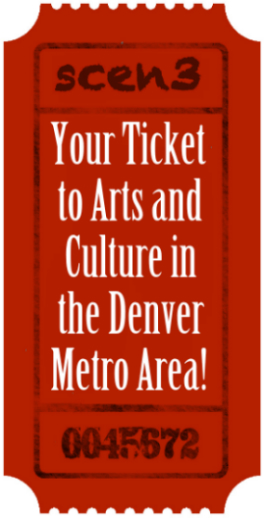The Catamounts perform a delectable “Land of Milk and Honey”
At Westminster’s historic Shoenberg Farm, a play that’s part ghost story, part time travel
Reprinted from the Denver Post
Review by Lisa Kennedy, Special to The Denver Post Jun 10, 2021

If you go to see “Land of Milk and Honey,” you will be wandering around the barn of the historic Shoenberg Farm in Westminster when two actors arrive. They are mid-conversation and ready to loop you in. From its start, the Catamounts’ unerringly engaging production casts the audience as participant-observers — often to tender and illuminating effect.
The Boulder-based theater company’s layered story (written by Jeffrey Neuman) of the founding of the farm as a sanatorium for tuberculosis patients is factual but also fantastical. In addition to offering a poignant (and timely) Colorado history lesson, there will be hymns and dancing, ghosts and quite a few moments of winking humor.
In the early 1900s, after the death of his only child, Louis Shoenberg funded the building of a sanatorium and farm for tuberculosis patients at the behest of National Jewish Hospital. While its 70 acres have since been eaten up by development (there’s a Walmart, Panda Express and Starbucks nearby), the Shoenbergs’ barn and a few of the dairy’s other buildings still stand near Sheridan Boulevard and West 72nd Avenue.
If you go
“Land of Milk and Honey,” 4 stars. A collaboration of the Catamounts and the city of Westminster. Written by Jeffrey Neuman. Directed by Amanda Berg Wilson. Featuring Chris Kendall, Christine Kahane, Joan Bruemmer-Holden, Amelia Corrada, Sam Gilstrap and Justy Robinson. Through June 27 at the Shoenberg Farm in Westminster, Sheridan Boulevard and West 72nd Avenue. For tickets and info, go to thecatamounts.org.
Once the audience is divvied into smaller groups, attendees wend through different rooms and meet myriad characters as the saga of the Shoenbergs unfolds.
Chris Kendall brings wounded weariness to his portrayal of the philanthropist. In an especially luminous turn, Christine Kahane plays Seraphine, a representative of National Jewish who accompanies Louis. And if her name sounds potent, it should. It’s derived from the Hebrew Bible’s winged angels, the seraphim, or “burning ones.” A visionary with a gift of gab, Seraphine coaxes Louis to turn his grief into something greater.
Shoenberg’s son, Dudley (Justy Robinson), makes a few ghostly appearances — at times singing a liltingly mournful hymn, another time addressing his father directly.

Directed by Amanda Berg Wilson and carried aloft by a beguiling ensemble, the production’s resonance during a pandemic is undeniable and smartly finessed. (Look up “tuberculosis pandemic” and you will discover that we still are in the midst of another global pandemic.)
Even before this pandemic made the “bodies-in-a-room” arts nearly impossible, the Boulder-based company had been teasing the meaning of that “room.” Working in the Dairy Arts Center’s smaller theater, they were constantly reimagining ways to make that black-box theater fluidly intimate. Last summer, as the coronavirus roiled, “The Rough” — Catamount’s delightful meditation on golf, resources and access unfurled over the greens of Westminster’s Legacy Ridge golf course.
This marks the company’s second collaboration with the city of Westminster. Too often the yoking of a municipal agency with an arts purveyor becomes an excuse for middle-of-the-road (too middling) fare. “Land of Milk and Honey” and “The Rough” provide inventive proof that these kinds of tag-teams can produce engaging, entertaining and oh-so-smart work.
A number of actors here portray two characters. Ruth, a young patient from the Midwest, welcomes audience members as if they, too, are fresh arrivals. Performed by Amelia Corrada, Ruth covers for her fear — and lonesomeness? — with a sweet alertness, an over-eagerness to share her so recently gleaned insights. Corrada is just as compelling when she brings a satirical aplomb (think “SNL’s” Kate McKinnon) to her depiction of an under-the-gun ad exec.
Joan Bruemmer-Holden’s Dolley — a purveyor of frozen delights — is ample, sly and a little va-va-voom as she tells her story of woe but also resilience. (Why, “Hello Dolley,” indeed.) Her Carrie is warmly imposing as she conducts a Jewish women’s benevolence club meeting. You will likely vote precisely the way she hopes you will.
As Jacob, a farmer, Sam Gilstrap teaches newbies how to make a quick-release knot (I alone appeared stumped) for the dairy cows. His monologue brims with warmth for the beasts but also is infused with a hurt wrought in fleeing Europe’s anti-Semitic pogroms. Later, Gilstrap portrays Frank, who teaches volunteers to make toiletry bags for people experiencing homelessness. The characters are different — seemingly speaking for different eras — but each makes the eddies of sorrow (but also possibility) palpable.

Much like the show asks of its attendees, “Land of Milk and Honey” time-travels. It finds the present in the past and the past in our present.
It takes a special eye to turn the artifacts of the archive into a performance and reveal the ways our stuff continues to impart stories. Production designer Matthew Schlief pulls that off, turning a barn into a museum but also a secular-yet-sacred sanctuary. He repurposes what had been milking parlors into intimate, cement-and-brick theatrical spaces. He sees in a field of dirt, rocks and weeds (hint: bring walking shoes) a dormitory of beds.
Others keeping the production evocatively and playfully on point are dramaturg Lynde Rosario, costume designer Nicole Watts and sound designer Max Silverman.
By this point in human history, one might argue that the biblically promised land of milk and honey is always a place in need of creation, the never-ending work of human compassion, more than an actual destination. Thanks to the Catamounts, this “Land of Milk and Honey” is a bold expression of theater’s benevolent possibilities and a worthwhile destination.

Lisa Kennedy, Theater critic
Lisa Kennedy’s film critic job returned her to the town she grew up in after 20 years of living elsewhere: mostly in New York City. During the time she’s been back, she was voted into the National Society of Film Critics, a first for a Colorado reviewer.







